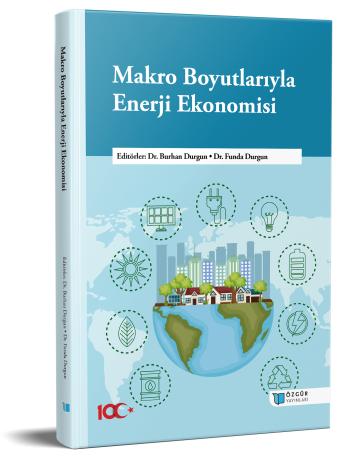
The Relationship between Income Inequality, Renewable Energy Consumption and Energy Efficiency: The Case of Türkiye
Chapter from the book:
Durgun,
B.
&
Durgun,
F.
(eds.)
2023.
Macro Aspects of Energy Economics.
Synopsis
In recent years, increasing income inequality and environmental degradation have come to the forefront as barriers to sustainability. The Russia-Ukraine war has added the issue of energy security to these two problems, which will take a long time and a great deal of effort to reduce to moderate levels. Energy shortages have led countries to focus on saving energy, using energy efficiently, and investing in renewable energy. Environmental quality can be improved through the efficient use of energy, which is predominantly derived from fossil fuels, and by increasing the proportion of renewable energy. Identifying whether income distribution has a positive or negative impact on reducing the level of environmental degradation may provide an opportunity to address both issues together. In this context, this study investigates the impact of income inequality and renewable energy consumption on energy efficiency in Türkiye. The primary energy intensity indicator is used for the energy efficiency variable, the gini coefficient is used for income inequality, and the renewable (including hydropower) energy consumption per capita indicator is used for renewable energy consumption. In the analyses covering the period 1990-2021, the long-run relationship was tested with the RALS ADL method. The test result indicates that the variables are cointegrated. Based on the long-run elasticities, income inequality has a positive impact on primary energy intensity, whereas renewable energy has a negative impact. In the short-run analysis, it is observed that the error correction mechanism works but the effects of the independent variables are insignificant. According to these results, in order to achieve energy efficiency in Türkiye, income inequality should be reduced and investments in renewable energy should be increased. This will reduce income disparities in society and save energy while protecting the environment through the use of clean energy sources.

